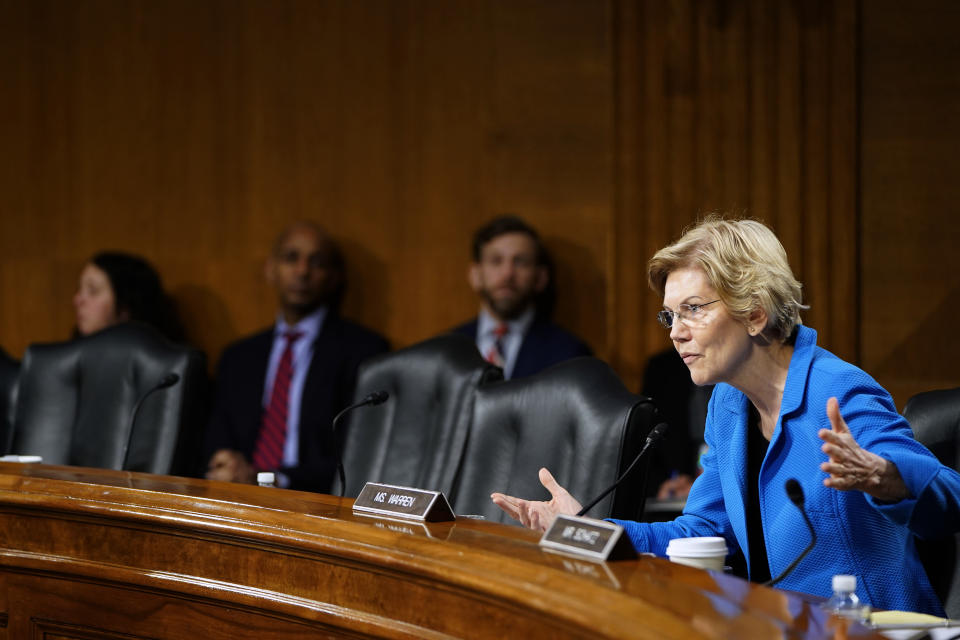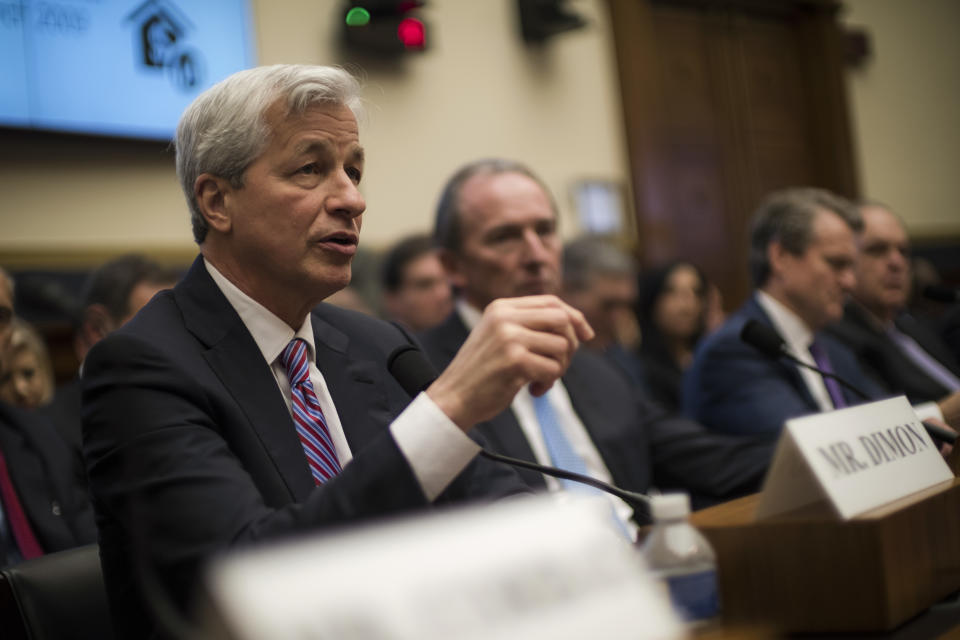Elizabeth Warren wants answers from JPMorgan on new forced arbitration policy

Senator Elizabeth Warren (D-MA) is ratcheting up the pressure on America’s biggest bank.
Warren, along with Representative Jesús “Chuy” García (D-IL), wrote a letter to JPMorgan Chase (JPM) CEO Jamie Dimon on Thursday, asking why the bank is re-introducing forced arbitration clauses in contracts with credit card users.
These types of clauses require that, when seeking redress, customers submit to a closed-door hearing rather than having the ability to pursue a lawsuit. This stops consumers from being able to band together to form class action lawsuits and, according to Warren, often dissuades action from customers who don’t want to fight big banks alone.
“Forced arbitration clauses ban customers who have been cheated from banding together and vindicating their rights in court. This practice allows banks and other companies to get away with scamming large numbers of customers out of relatively small amounts of money,” the letter stated.
The decision to include forced arbitration in its contracts, which was announced in an email in early June, is a reversal from the bank’s policy for the last decade — in 2009, as part of a class-action lawsuit, JPMorgan Chase agreed to drop arbitration for three and a half years.

JPMorgan spokeswoman Patricia Wexler told The New York Times, “Data shows that arbitration is often faster, less expensive with better outcomes for our customers.” However, some experts disagree. A study conducted at Stanford University by Professors Mark Egan, Gregor Matvos, and Amit Seru that analyzed over 9,000 arbitration cases found that companies often pick arbiters who have track records of deciding in favor of the business. Egan, Matvos, and Seru concluded that consumers pursuing arbitration hearings are at a distinct disadvantage.
“If Chase really thought that arbitration was in the best interest of its customers, it would give them the choice of whether to use arbitration or go to court — but you are not giving them a meaningful choice,” Warren and García argued.
The change applies to almost all of JPMorgan Chase’s credit card users. They are allowed to opt out of the new provision with a written and signed letter, mailed to a PO Box in Delaware, until August 9.
Banks have had to contend with less regulation since the Trump administration began, as he has largely defanged the Consumer Financial Protection Bureau (CFPB) that Warren set up. In October of 2017, Trump signed a resolution that overturned the CFPB’s ban of forced arbitration clauses for financial companies.
A CreditCards.com review of 30 major card issuers found that two-thirds of them now use forced arbitration practices, albeit with some exceptions for suits in small claims court.
In her letter, Warren has given Dimon a deadline of July 12 to explain more fully the reasoning for his bank’s policy change.
Warren is not the only Democratic presidential candidate to express disappointment with the forced arbitration clause. On June 7, just days after the change was announced in an email, Senator Kamala Harris (D-CA) wrote a letter to Dimon co-signed by Senator Richard Blumenthal (D-CT) arguing, “Forced arbitration is unfair and unjust to consumers.”
Yahoo Finance did not receive an immediate response from JPMorgan for comment on the letter from Warren and García.
Calder McHugh is an Associate Editor at Yahoo Finance. Follow him on Twitter: @Calder_McHugh.
The jobs report is even worse than it looks in these six sectors
These US industries could take the heaviest hit from new tariffs
There's a gap between jobs and job-seekers, and a housing crisis is making it worse
Streaming boom becomes 'holy grail' for resurgent music industry
Trump's tariffs hit Texas manufacturers, spark fears for the future: Survey
Follow Yahoo Finance on Twitter, Facebook, Instagram, Flipboard, SmartNews, LinkedIn, YouTube, and reddit.